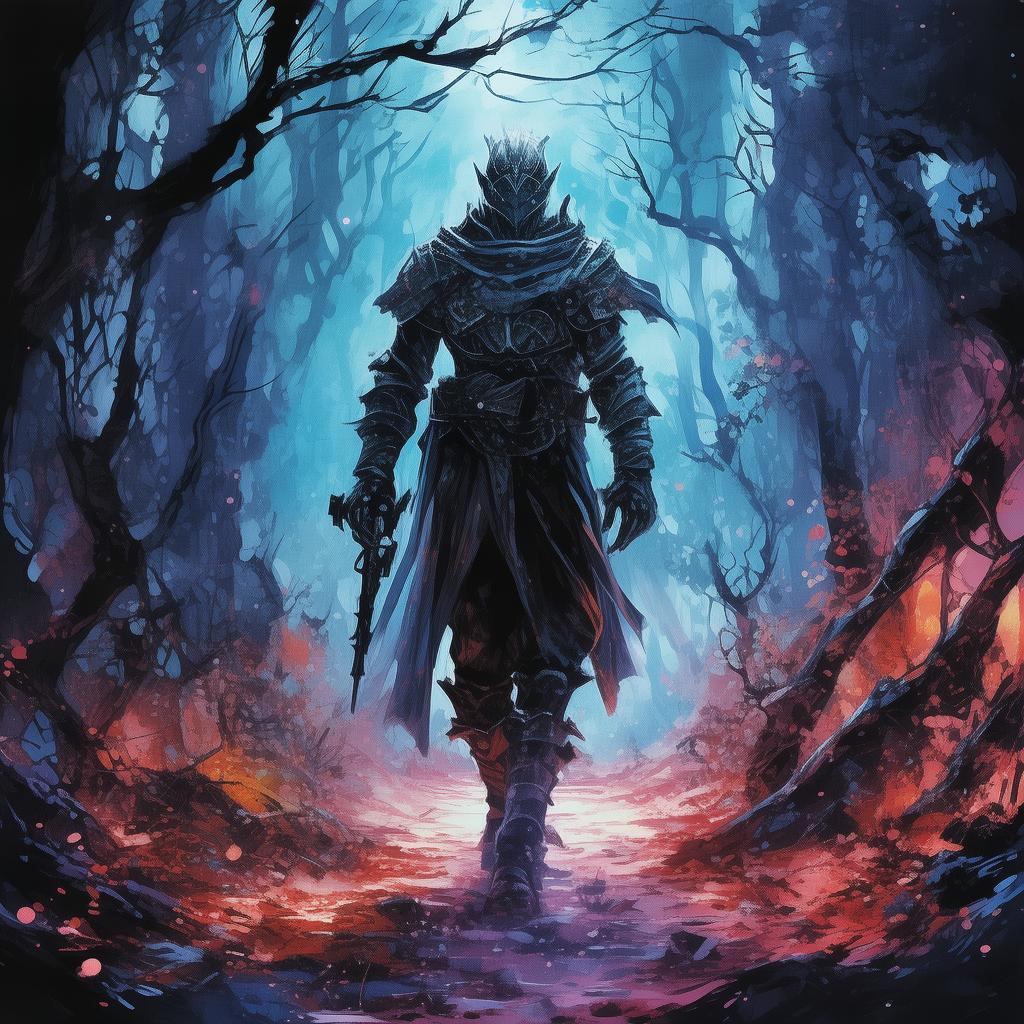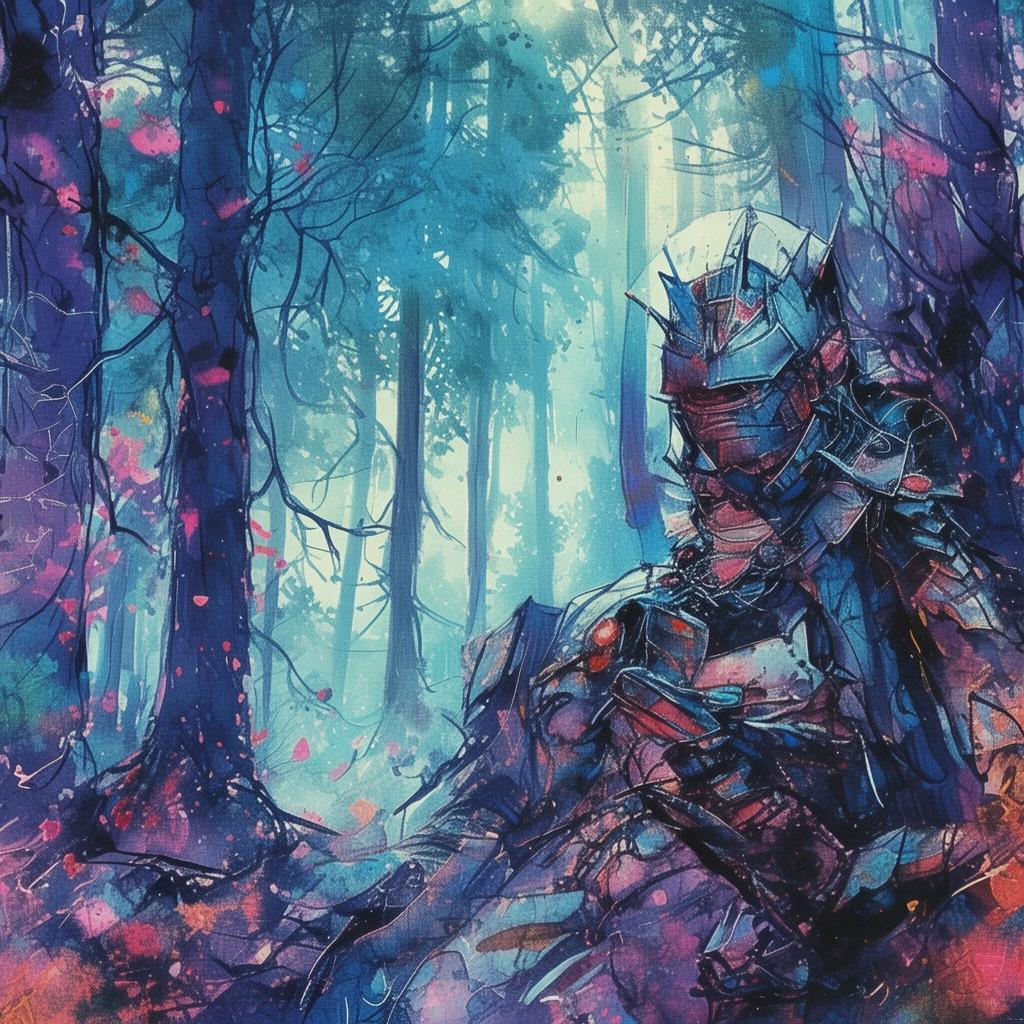The Pen That Shattered Eternity
In the heart of the Eastern Han Dynasty, where the whispers of history mingled with the rustling leaves of the willow trees along the Yangtze River, there lived a man whose name was as famous as his works. Wang Xizhi, the master calligrapher, was a man of many talents and few equals. His brush danced upon the silk with a life that seemed to leap from the page, capturing the very essence of nature and the human spirit.
One fateful day, as the sun dipped below the horizon, casting long shadows across the river, Wang Xizhi received a letter from a distant friend, a fellow artist known for his wisdom and compassion. The letter spoke of a dilemma that had been haunting him for years, and it had reached the ears of Wang Xizhi, the man who could unravel the deepest of mysteries with a single stroke of his brush.
The dilemma centered around a single, precious scroll that was said to possess the power to alter the very fabric of reality. The scroll was said to have been written by an ancient sage, a man whose name was lost to time, but whose legacy lived on in the whispers of the wind. The scroll was known as the "Eternal Pen," and it was said to hold the power to create and destroy worlds with a single word.
Wang Xizhi, intrigued by the letter's content and the scroll's legend, knew that he must see the scroll with his own eyes. He set out on a journey that took him through the lush mountains and across the vast plains of ancient China, a journey that would test not only his physical endurance but also his moral compass.
Upon reaching the remote abode of his friend, Wang Xizhi was greeted by a sight that took his breath away. A small, dimly lit room contained an ancient desk, and upon it lay the scroll, wrapped in silk and adorned with intricate carvings that spoke of ancient power.
As Wang Xizhi reached out to touch the scroll, he felt a strange sensation, as if the air itself was trembling with ancient energy. His friend, a man of few words, handed him the scroll and stepped back, allowing the master calligrapher to examine the contents.
The scroll was filled with words that seemed to dance upon the page, each character more beautiful and powerful than the last. Wang Xizhi's heart raced as he realized the magnitude of what he held in his hands. The power of the "Eternal Pen" was not just a legend; it was a reality.
But as he pondered the scroll's meaning, a moral dilemma began to form in his mind. The power to create and destroy worlds was a burden that he was not sure he could bear. He knew that if he used the scroll's power, he would become a god among men, but he also knew that such power could corrupt even the purest of intentions.

Wang Xizhi spent many nights and days in contemplation, the scroll resting in his hands, its words etching themselves into his soul. He sought advice from the wisest of men, from the humblest of farmers, and from the most powerful of rulers. Each offered a different perspective, each with its own merits and flaws.
In the end, Wang Xizhi knew that the decision was his alone. He could not let the scroll's power fall into the wrong hands, but he also could not bear the thought of using its power for his own gain. He decided to use the scroll to protect the world from those who would misuse its power, to ensure that the scroll would not become a weapon in the hands of the greedy and the corrupt.
With a deep breath, Wang Xizhi wrote a single word upon the scroll, a word that would ensure its power would remain hidden and its magic contained. The word was "Balance," a reminder to all who would come after him that power, while great, must be wielded with balance and respect.
The scroll was then returned to its place of origin, its power sealed away, and Wang Xizhi returned to his life as a humble calligrapher. He continued to create art that spoke of beauty and harmony, using the scroll's power as a reminder of the moral quandary he had faced and the choice he had made.
And so, the tale of the "Eternal Pen" and the master calligrapher Wang Xizhi became a legend, a story that would be told for generations, a reminder that power, while intoxicating, must always be used wisely and with a heart full of compassion.
✨ Original Statement ✨
All articles published on this website (including but not limited to text, images, videos, and other content) are original or authorized for reposting and are protected by relevant laws. Without the explicit written permission of this website, no individual or organization may copy, modify, repost, or use the content for commercial purposes.
If you need to quote or cooperate, please contact this site for authorization. We reserve the right to pursue legal responsibility for any unauthorized use.
Hereby declared.









